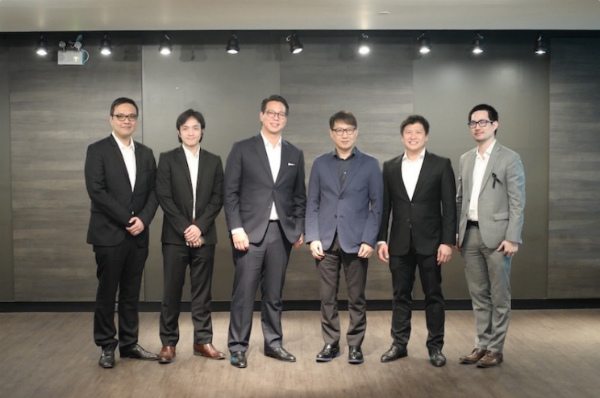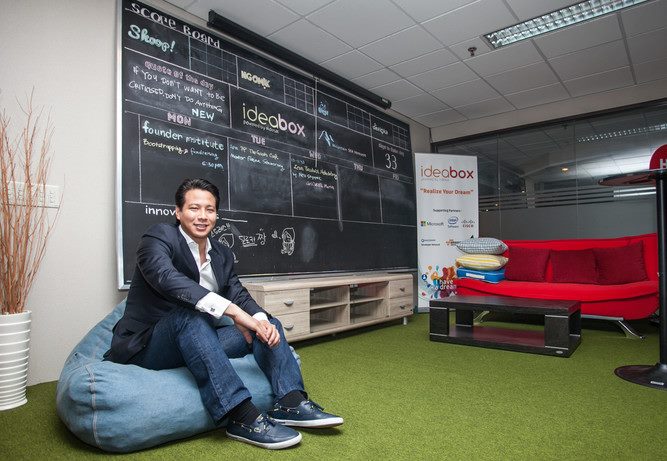Prestige 40 under 40, 2015. A serial entrepreneur with more than 25 investments across Asia. Founder and Managing Director of a VC firm. Many accolades, one man: Sebastian Togelang.
In 2014, when Sebastian Togelang came back to Indonesia from Germany, he could count the number of VCs active in the archipelago on his fingers. This number also included the few international players that had made their foray into the emerging Southeast Asian startup pool.
Jump to 2017, and the number has grown significantly to reach 20 prominent players, indicating that Indonesia’s startup ecosystem is growing at a unprecedented pace by all, including the frontrunners of the startup ecosystem.

Togelang who founded Kejora Ventures in 2014, is also the co-founder of Ideabox – an incubator set up between Mountain Kejora Ventures and Indosat/Ooredoo Group, focussing on incubating technology companies in the emerging markets.
Sebastian has invested in about 29 startups, 16 of them are through the Ideabox programme. With a presence in Jakarta, Singapore, Makati City and Bangkok, Kejora recently announced the launch of its second fund, with an expected corpus of $80 Mn with plans to expand to Malaysia.
In an exclusive interview with Inc42, he shares what it takes to be a VC in Indonesia, the startups evolving there, and how companies can maximise on growth and development in the island nation. Here are the excerpts from our recent interaction.
[The interview has been edited for length and clarity.]
Inc42: According to you, which sectors in Indonesia will see a potential rise in funding and demand in the near future?
Sebastian: In the Indonesian tech space, at the moment, fintech is in rising demand. Whether it is about experimenting with new technologies or attracting funding, fintech startups are doing it all. Secondly, logistics, which is still a big problem in the country, has a huge opportunity for startups to cash upon. The opportunity lies at both the ends, both first-mile and last-mile, so the sector will see a rise in ideas and emerging startups.
Lastly, data, which very important and how can one manage it, is also a hot segment and is in demand in the country at the moment – especially with the AI and machine learning entering. Additionally, maybe in the coming future, healthtech and edtech will gain supreme importance too. But, right now, the space belongs to fintech. It’s the big thing out there. At the end of the day, it’s all about solving problems with scalability.
Inc42: What prominent industry trends do you see when it comes to fintech scene in Indonesia?
Sebastian: Fintech in Indonesia is growing at an unprecedented pace. We can already see the changes it has brought in everyday lives – in payments, insurance, and online banking. The industry has shifted rapidly in the last 2-3 years.
We, at Kejora, have already invested in four fintech companies, and have also co-founded a fintech association, so there are more and more companies to come. The fintech association started from 3-5 startups and within couple of months this number has grown to reach 90 The number of product launches in the fintech space has left behind all its contemporary industrial/tech sectors.
When it comes to entirely replacing cash with digital payments in the country, I think, Indonesia still has a long way to go. The fact that only 40% of the country’s population is currently bankable posts a big challenge for the fintech startups. Nevertheless, the industry is moving more towards cashless and digital payments have become the go-to strategy.
Inc42: Just recently, Kejora closed an $80 Mn fund. How do you plan to deploy the fund? What are you key focus areas?
Sebastian: Our business motto is very simple. We look at what are the successful companies (revenue making and sustainable) in other countries including Europe, China, the US and other parts of the world and try to apply their business model here because sooner or later other countries will buy similar stuff in this region.

We are very focussed on bringing these successful business models to startups in Southeast Asia and help them expand as fast as possible, when it comes to digital businesses, the number one player can probably take almost 70% of the market, so speed and timing is everything in a digital venture.
And now, even with the new fund, we are still going to focus on things we are good at. I think we are good at understanding the insurance sector. We are putting more energy towards logistics, because that’s something that is still a very big problem in Indonesia. Edtech is also something we might focus upon in future.
Inc42: Since the advent of startup ecosystem in Indonesia, the country has seen some shifting investment and investor patterns. Where 2016 saw some major acquisitions and partnerships such as Lazada-Alibaba, Uber-ExpressTaxi etc., where do you see 2017 going? Additionally, what is the investor strategy at this moment in the industry?
Sebastian: 2017 will be a continuation of the scenario that began in 2016. Where 2014-2015 was the year of rapid growth, while at the end of 2015, it saw a sudden halt. The unicorn crisis happened in 2016 when a lot of companies…

